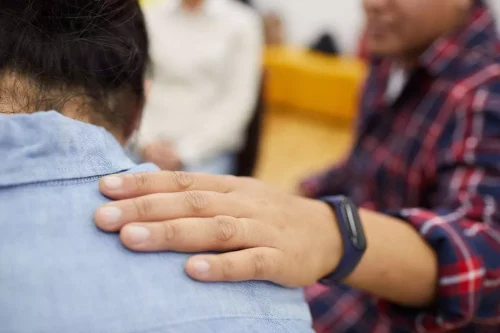
Once you’ve made your relapse prevention plan, share it with friends, family, and the people you live with, so they can provide support, but also remove triggers from the home. Share it with the people you spend a lot of the time with, including those who have used substances with you in the past, so they can be aware. Returning to drug or alcohol use after treatment for substance use disorder is a part of many people’s recovery journey. A person may make a plan to prevent this with support from a healthcare professional. Not everyone who goes through the emotional and mental stages of relapse actually relapses.
Participate in Relapse Prevention Therapy
Some common early warning signs include changes in sleep patterns or eating habits, increased irritability or impatience, or sudden changes in mood or behavior. By understanding what to look for, individuals are better equipped to respond proactively and prevent a relapse. Research has shown that this approach is particularly effective because it invests in creating a sense of community and shared responsibility among all members of the family.
- It can be helpful to remember to check in with yourself when starting the recovery process and at regular intervals throughout.
- Explore diverse substance use disorder treatment options to support healing and recovery for lasting change.
- Regularly evaluating your plan allows you to ensure its continued relevance and effectiveness.
- Recognizing these triggers is crucial for those in recovery, as they often precede the return to substance use.
- Pathways involved in how a person feels pleasure and processes rewards, memory, and decision-making can be altered through substance use.
Common Triggers and Risk Factors
At the core of it lies being able to identify warning signs that could signal impending relapses, such as changes in mood, behavior, or sleep patterns. Once identified, an action plan must be created in case these warnings arise. For instance, this might https://ecosoberhouse.com/ involve reaching out to support persons, attending support group meetings, or practicing relaxation techniques as an immediate remedy. Triggers and cravings can be major obstacles on the journey toward recovery, so it is crucial that strategies be devised to manage them.
What is a relapse prevention plan template?

Short-term goals can be smaller milestones that you can achieve within a few weeks or months, while long-term goals are broader aspirations that may take years to accomplish. By having a combination of both, you can experience a sense of accomplishment along the way while keeping your eyes on the bigger picture. Clear and honest communication is vital for maintaining healthy relationships within your support system. Effective communication involves active listening, expressing your needs assertively, and resolving conflicts constructively. Focus on how what is Oxford House much better your life will be once you stop using drugs or alcohol for good. Think about what’s driving you to quit, such as rebuilding damaged relationships, keeping a job, or getting healthy again.

Emotional Triggers
They quickly boost motivation when you’re feeling relapse prevention plan down or facing difficulties. Reading over and thinking about these quotes can strengthen your positive thinking and keep you focused on recovery. Give yourself credit for each small gain you make — one week sober, one month off drugs, etc. For each goal you achieve, give yourself a reward as motivation to keep moving forward.

- Regular engagement with support systems reinforces recovery goals and enables individuals to share experiences and insights.
- A relapse prevention plan includes various strategies and techniques, such as identifying personal behaviors, to help reduce the risk of a relapse following treatment for substance use disorder.
- Recovery involves making major lifestyle changes and working on a program of recovery.
Discover the effectiveness of short-term rehabilitation for addiction, customized recovery programs, and goal setting. Explore who you are in recovery, embracing identity, support, and personal transformation on your journey. Unveil the complex web of risk factors for addiction and learn how to break the cycle today. Discover non-12-step rehab to treat addiction, a revolutionary approach offering personalized recovery paths. AddictionResource aims to present the most accurate, trustworthy, and up-to-date medical content to our readers. Our team does their best for our readers to help them stay informed about vital healthcare decisions.
- To streamline the creation of your relapse prevention plan, here is a template that you can use as a starting point.
- The plan acknowledges that relapse is a process involving emotional, mental, and physical stages, emphasizing the need for proactive planning.
- Discover what the twelve steps entail and how they can guide recovery and spiritual growth in addiction.
- Though relapse prevention plans are unique to each individual, there are specific components that are helpful to include in a final plan.
